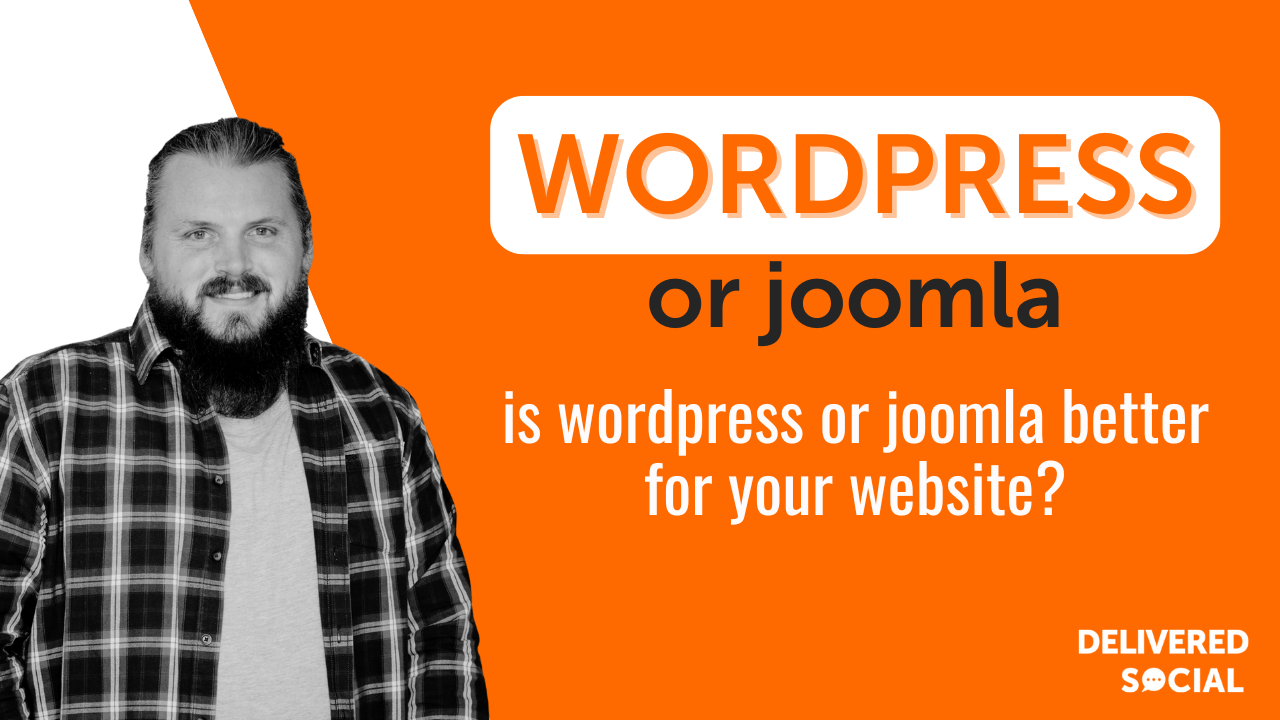
Choosing the right content management system can impact how easily you manage your site, how fast it loads, and how well it ranks on search engines. WordPress and Joomla both offer strong features, but they serve different needs depending on your goals. Whether you’re building a blog, an online store, or a company website, it’s important to understand what each platform does best. This article compares setup, customisation options, support, and long-term flexibility to help you decide which fits your project. If you’re asking whether WordPress or Joomla better suits your needs, this breakdown gives you the facts to make a smart choice.
Ease of Use
Setting up a website should not take too much time. WordPress makes this process simple. Users can install it quickly and start building pages without needing special knowledge. Its dashboard is clear, with basic tools arranged in a way that is easy to follow. Publishing content, adding images, and updating menus require only a few steps.
Joomla provides more control over structure and layout. However, the interface may confuse users who have never built a site before. It includes more options from the beginning, which can slow down progress for those unfamiliar with web development systems.
Themes and plugins in WordPress install with just one click. This saves time during setup or updates. Joomla extensions often need manual configuration after installation. That means extra steps for tasks like setting up contact forms or galleries.
WordPress also supports quick edits to posts and pages using its block editor. The drag-and-drop layout helps users place elements where they want them without writing code. Joomla uses different editors that offer similar features but require more clicks to reach the same outcome.
Support plays a role too when asking whether WordPress or Joomla better suits someone new to site creation. WordPress has larger communities offering help through forums, tutorials, and video guides tailored for all skill levels.
Joomla allows deeper control but expects users to understand how modules interact with templates from day one. This favors those who already know how websites function behind the scenes rather than casual users looking for fast results.
Choosing between these two platforms depends on how much effort someone wants to invest in learning the system before launching their project online.

Customisation and Extensions
Both WordPress and Joomla allow users to adjust how their sites look and function. Each platform supports templates, plugins, and modules that help shape the site’s structure. However, they offer these tools in different ways.
WordPress has a large library of plugins. These add features like contact forms, image sliders, or online stores without needing to write code. With thousands of free and paid options available, users can find tools for nearly every task. WordPress themes also provide many layout choices. Users can switch styles quickly with just a few clicks.
Joomla includes more built-in features at the start. This means some things that require plugins in WordPress already exist inside Joomla’s core system. For example, Joomla has access control levels and multilingual support ready to use from the beginning. These tools give developers more control without extra downloads.
When it comes to extending functions beyond the basics, both systems have strong communities building new tools regularly. But WordPress continues to lead in volume of third-party add-ons available through its official directory or other sources online.
Joomla uses extensions like components, modules, and plugins to expand what a site can do. These items need more setup knowledge compared to WordPress but offer deeper control over specific parts of a website.
Choosing between them depends on user needs and skill level. People who want fast results may prefer WordPress because it offers quicker setup through drag-and-drop builders or one-click installs for features.
Those comfortable managing technical settings might lean toward Joomla due to its native flexibility within core settings.
For anyone asking whether WordPress or Joomla better suits their customisation goals, it often depends on how much time they expect to spend managing those custom parts after launch — not just during setup alone.
Community and Support
When choosing a content management system, access to help matters. WordPress has a large global user base. People from different industries use it daily. Because of this, there is a wide range of support options available online.
Many users share tips through forums, blogs, and video guides. These resources cover both simple and advanced topics. If someone has an issue or question, chances are that others have faced the same thing before. This makes finding answers quicker and easier.
Joomla also offers support through its own channels. It has official documentation that explains how to use its features. There is also an active forum where users can ask questions or give advice. However, Joomla’s user base is smaller than WordPress’s. This means fewer third-party tutorials or community-run websites exist for Joomla.
WordPress provides more frequent updates and plugin support discussions from its contributors around the world. Developers often respond quickly to issues because of their active involvement in the platform’s growth.
Joomla users might need more time to find specific solutions online due to limited external content compared to WordPress.
For developers or site owners who want fast guidance without hiring professionals, this difference can be important when deciding whether WordPress or Joomla better fits their needs.
Support availability plays a key role in managing any website over time. Whether someone prefers reading step-by-step guides or asking questions on forums, having several choices helps solve problems faster without delay from waiting on direct technical help every time something goes wrong with setup or updates.
SEO Capabilities
Search engine optimisation helps websites appear in search results. Both WordPress and Joomla offer tools for this purpose, but they do it differently.
WordPress supports several plugins that help users manage SEO tasks easily. One of the most used is Yoast SEO. This tool lets users set page titles, meta descriptions, and keywords without editing code. It also checks content readability and gives suggestions for better performance on search engines.
Other features like XML sitemap creation, breadcrumb support, and social media preview options come built into many WordPress plugins. These features help improve visibility on platforms like Google or Bing without much setup effort. Users can control how their pages appear in search listings through simple settings.
Joomla also includes SEO functions but often needs more manual steps to reach the same level of control. For example, enabling URL rewriting or setting metadata requires navigating deeper into system settings or installing additional extensions. While Joomla does give users access to custom metadata fields and clean URLs, it demands more technical knowledge to use them effectively.
Another difference is plugin variety. WordPress has a larger library of SEO-related tools maintained by developers worldwide. Joomla offers fewer choices, which may limit flexibility for some site owners who want advanced features without coding.
For people asking whether WordPress or Joomla better suits their SEO goals, ease of use becomes important. WordPress often appeals to those who prefer quicker setup with less manual effort. Joomla might fit better for users comfortable managing technical details on their own.
Both systems can be optimised well if handled correctly. The main contrast lies in how simply each platform allows users to reach strong results with minimal time spent adjusting settings manually.
Security Features
Joomla comes with several built-in tools to help manage safety. It includes two-factor authentication, which adds an extra step to logins. It also supports forced SSL connections and has options for setting user permissions in detail. These features come pre-installed, so users do not need to add separate modules or extensions for basic protection.
WordPress operates differently. Most of its core safety functions depend on plugins created by third parties. To get firewall protection, malware scans, or login limits, users often have to install and configure several add-ons. While many of these plugins offer strong protections, they require updates and regular monitoring from the site owner.
Because Joomla offers more security controls out of the box, it can reduce setup time for those who want a safer site without much customisation. WordPress gives flexibility through its wide selection of plugins but also demands more attention to plugin quality and compatibility.
Regular updates play a major role in keeping both platforms secure. Joomla has a slower release cycle but includes fixes directly in core upgrades. WordPress releases patches more frequently but may need plugin developers to update their tools separately.
For users asking whether WordPress or Joomla better suits their needs from a safety perspective, the answer depends on how much control they want over configuration and maintenance tasks. Joomla may appeal more to people who prefer having key defenses already installed without needing extras. WordPress might suit those who want freedom to choose from various third-party solutions even if it means handling more updates themselves.
Both systems can be made safe when managed carefully. The real difference lies in how each platform approaches risk prevention at the start and how much effort is needed after launch to maintain that level of defense over time.
Performance and Scalability
Both WordPress and Joomla can support websites with heavy traffic. When configured correctly, each system delivers stable results under load. The difference often lies in how developers use the tools available within each platform.
WordPress relies on themes and plugins to handle most functions. These tools can slow down a site if not chosen carefully. Large websites using many plugins may face delays without regular upkeep. Caching, content delivery networks (CDNs), and optimised hosting help improve speed on WordPress sites.
Joomla takes a different route by offering more built-in features from the start. It uses fewer external extensions to manage advanced tasks. This setup gives developers tighter control over performance from the beginning of the project.
Scalability is possible with both systems, but they take different paths to reach that goal. WordPress scales well when supported by strong server resources and clean code practices. Many enterprise-level websites use it successfully with custom setups tailored for growth.
Joomla is often selected for projects that need complex workflows or unique user permissions across sections of a website. Its core structure allows more flexibility in managing these needs without extra tools or plugins.
Database handling also plays a role in performance as traffic grows. Joomla offers more control at this level out of the box, which supports smoother scaling when data volume increases quickly.
Whether Joomla or WordPress better suits your needs depends on how much customisation you require during development and how you plan to grow your site over time.
Proper planning matters more than platform choice alone when aiming for long-term stability under high demand online.

Is WordPress or Joomla Better for Your Website? Choose Simplicity or Control Based on Your Needs
Choosing between WordPress and Joomla depends on what your website needs from day one. If you want to build a site quickly, WordPress offers a faster setup. It comes with many ready-made themes and tools that help users without much technical knowledge. Many small businesses, bloggers, and beginners use it because they can get started without touching code.
Joomla, on the other hand, gives more control during setup. It allows for deeper structure changes right from the start. This makes it useful for people who want to manage content in more complex ways or run multiple user types with different permissions.
WordPress has a large selection of plugins that extend its features. You can add contact forms, SEO tools, online stores, or booking systems with just a few clicks. These resources save time and reduce development costs. Joomla also has extensions but not as many as WordPress offers.
If design is important to you but you don’t know how to code, WordPress gives access to thousands of themes built by others. Joomla provides templates too but often requires more effort to customise fully unless you have some coding experience.
Security updates come frequently for both platforms, but managing them is easier in WordPress due to automatic updates available for core files and plugins. Joomla users may need more manual handling when keeping their system safe.
The question of WordPress or Joomla better really comes down to what kind of project you’re building and how hands-on you want to be at launch time. If ease matters most right now—go with WordPress. If full control matters more from the beginning—Joomla might serve your plans better.
Each platform serves different goals depending on the user’s level of comfort with web development tasks and their long-term growth expectations for the site they’re creating.
Choosing the Right Platform for Long-Term Success
As we’ve explored, selecting between WordPress and Joomla depends largely on your specific website goals and technical expertise. WordPress stands out for its ease of use, vast plugin ecosystem, and strong SEO capabilities – ideal for beginners and content-driven sites. Joomla offers more flexibility out-of-the-box, making it a solid choice for developers seeking advanced customisation and scalability. Both platforms have active communities and robust security features. Ultimately, determining whether WordPress or Joomla better suits your needs comes down to how you prioritise usability, control, and future growth. Evaluate your priorities carefully to build a site that delivers long-term results.
Interested In Working Together?
Introducing Delivered Social. We’re The Most-Rated Digital Agency In Surrey & Hampshire – We’ve Got To Be Doing Something Right.
Delivered Social is a digital marketing agency with one mission—to help businesses grow. We’re famous in Guildford and Portsmouth for our social clinics. We believe in free advice. We build lasting relationships because our team prides itself on being helpful, which our clients appreciate.
If you are looking for a new website or an agency to manage your social media presence, we can help.
If you need something slightly different, here's a super handy list of all our services, or you can always email us.























